In 2002, in response to the Smart Growth Initiative from the State of Wisconsin, the Grant Land Use Planning Commission was formed. It was the responsibility of the Plan Commission to learn about past community changes, changes likely to occur in the future, community likes and dislikes and to define what residents want the Town of Grant to become. Community participation in this process included visioning sessions, open houses and a Town of Grant Citizen Opinion Survey. The Comprehensive Land Use Plan for the Town of Grant was completed in May of 2005. Copies of the complete plan are available to view at the Grant Town Hall.
Selected Results From The Opinion Survey
The majority of respondents (83.7%) believe prime farmland should be preserved for agricultural purposes. 62.9% do not want corporate/factory style farms to locate in the township. A slim majority (55.6%) believes there should be a limit on the number of animal units per farm.
69.1% of the respondents indicate that farmers should be able to sell their farmland for purposes other than farming. However, 52.8% do not want to see agricultural land used for residential housing purposes, and 63.5% do not want to see it used for commercial/industrial purposes.
Less than 40% of the respondents believe more single family housing is needed in the township. The citizens are split almost evenly as to whether there are too many mobile homes in Grant. Also, 71.9% of the citizens believe there should be an ordinance regulating minimum housing standards.
The predominant minimum lot size for housing desired by the residents of the Town of Grant is 35 acres. 64.6% of the respondents believe this preserves the rural character of the township. 60.1% believe current zoning serves Grant well. Of those responding a large majority (82.6%) believe the Red Cedar River should be protected from development. 57.9% of citizens do not believe existing land use regulations have a negative impact of the value of their property, while 59.6% do not want to see more restrictive land use regulations. However, 55.6% do not want to see regulations relaxed so development can respond more freely to market conditions. Of the respondents, 76.4% believe land use regulations should emphasize preserving the rural and agricultural character of the Town of Grant. Interestingly, respondents were split almost evenly (42.7% yes and 49.4% no) as to whether landowners should be allowed to sell their land to whomever they see fit, regardless of how the land will be used.
Of the citizens surveyed, 74.2% believe trees and open spaces to be more important than neighboring houses, and 80.3% agree it is important to preserve woodlands and environmentally sensitive areas in the Town of Grant. 60.7% of the respondents do not want to see commercial open pit mining (gravel pits), salvage or junkyards (76.4%) allowed to operate in the Town of Grant. If business/commercial development or agri-business development were to be allowed, it would be restricted to designated areas.
Currently, the majority of citizens do not believe there is a problem with ground water contamination (66.3%) or pollution of the river or streams (56.2%) in the Town of Grant
Long Term Goals and Objectives
The goals of the Town of Grant represent a general statement that outlines the most preferable situation that could possibly be achieved if all the objectives and policies were developed to their fullest extent. The Commission created the following goals based on the information gathered from the survey:
Goal 1: Preserve the Red Cedar River From Development
- Objectives
- Retain minimum lot size for housing.
- Discourage business activities that may pollute, change or otherwise harm the river.
- Preserve the river for it's recreationnal value.
Goal 2: Protect the Rural Character of the Township
- Objectives
- Retain Exclusive Agricultural Zoning with a minimum parcel size of 35 acres to build a residence.
- Recommend prospective builders meet with the Town Board to discuss the placement of a home, driveway specifications, and the expectations of the community and the Town Board.
- Publish an informational brochure on the community's beliefs, values, and culture to convey the expectations of being part of the community. (The Code of Country Living was completed in 2008.)
Goal 3: Keep Farms Viable
- Objectives
- Promote all types of agriculture.
- Encourage and promote additional means of farm income.
- Encourage landowners to implement soil and water conservation plans.
- Allow farmers to make investments in their operations to remain competitive in their operations.
- Allow people the freedom to be creative
Goal 4: Preserve Productive Farmland for Continued Agricultural Use
- Objectives
- Define "Important Farmland" according to the Land Evaluation (LE) portion of the USCA-NRCS Land Evaluation and Site Assessment Program (LESA).
- Prevent land divisions of important farmland.
- Retain Exclusive Agricultural Zoning with a minimum parcel size of 35 acres to build a residence.
- Recommend that residences be located to protect farmland. This committee would prefer that people build on the edges rather than in the middle of a field.
- Work cooperatively with Dunn County of achieve NR151 and ATCP50 performance standards.
